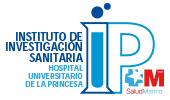Biological, cellular and molecular monitoring in haematology-oncology
Lymphocyte migration is involved in the pathogenesis of numerous diseases. Its control is a target for different forms of immunotherapy. Conversely, other forms of immunotherapy may affect lymphocyte migration, resulting in side effects that may or may not be desirable. The chemokine receptor CCR7 is involved in the localisation of lymphocytes in secondary lymphoid organs and mediates the ganglionic dissemination of lymphoid malignancies, and in inflammatory processes. CCR7 expression is very high in different lymphoid malignancies and several proofs of concept have demonstrated the therapeutic benefit of targeting the molecule or its subsequent signalling.
Among inflammatory disorders, CCR7+ naïve T-lymphocyte recirculation plays a key role in graft-versus-host disease (GVHD), which represents the major complication of allogeneic haematopoietic stem cell transplantation. Receipt of a high number of donor CCR7+ T cells increases the likelihood of migration through the recipient’s lymphoid organs and GVHD incidence. Therefore, the proportion of CCR7+ T cells in the allograft provides a predictive indicator of GVHD and supports selective T cell depletion approaches to prevent GVDH.
Dasatinib is a tyrosine-kinase inhibitor for the treatment of chronic myeloid leukaemia, which has immunomodulatory effects, including lymphocytosis, which occurs in most patients and which has been associated with a better outcome.
Our group has three objectives
1.- The efficacy of immunotherapy with CCR7.
Humanised versions of anti-CCR7 antibodies are being tested to treat ex vivo different lymphoid cancers, including B-cell and T-cell leukaemias. We are analysing their cytolytic activity dependent on cells or complement. Animal models of human primary T-cell leukaemias or GVHD are being used to evaluate the in vivo efficacy of using CCR7 as a target.
2.- Identification of GVHD biomarkers.
Better characterisation of CCR7+ T cells in the donor apheresis product is being used to identify subpopulations responsible for the development and severity of GVHD. This would allow recipients with a special need for GVHD prophylaxis to be identified. We will also perform in vitro migration functional experiments to evaluate whether the migratory capacity of lymphocytes in apheresis is a better predictor than CCR7 expression.
3.- Characterisation of the immunomodulatory effects of dasatinib.
We are evaluating the migratory response to different chemokines of lymphocytes obtained from patients immediately after their daily intake of the drug. In vitro experiments are being conducted to assess whether dasatinib has direct effects on the adherent and migratory capacity of lymphocytes.
Team members

Group leader: Cecilia Muñoz Calleja Hospital Universitario La Princesa |
Other team members.Hospital Universitario La Princesa:
|
Muñoz Calleja, Cecilia. Estudio de dianas terapéuticas novedosas en modelos preclínicos de linfoma y de trasplantes de progenitores hematopoyéticos. PI12/00494. ISCIII. 2012-2015.
Muñoz Calleja, Cecilia. Actividad anti-tumoral y anti-metastásica de anticuerpos monoclonales en modelos animales de cánceres humanos. RTC-2015-3318-1. MINECO. 2015-2018.
Muñoz Calleja, Cecilia. Valor del receptor de “homing” linfocitario CCR7 como biomarcador diagnóstico y terapéutico en la enfermedad de injerto contra huésped. PI15/02085. ISCIII. 2016-2018.
Muñoz Calleja, Cecilia. Influencia de la reconstitución inmunitaria en el resultado final del trasplante de progenitores hematopoyéticos y profundización en la patogénesis de la enfermedad de injerto contra huésped. PI18/01163. ISCIII. 2019-2021.
Evaluación de la Reconstitución inmunitaria y su asociación con el desarrollo de la enfermedad de injerto contra huéspedes (EICH)
This grant is funded by the 2017-2020 Spanish Science, Technology and Innovation Research Plan and the ISCIII – Subdirectorate General for Evaluation and Promotion of Research – and co-financed by the European Regional Development Fund, Operational Programme Smart Growth 2014-2020 according to Regulation (EU) no. 1303/2013.

Cuesta-Mateos, Carlos, Loscertales, Javier, Kreutzman, Anna, Colom-Fernandez, Beatriz, Portero-Sainz, Itxaso, Jose Perez-Villar, Juan, Terron, Fernando, Munoz-Calleja, Cecilia. Preclinical activity of anti-CCR7 immunotherapy in patients with high-risk chronic lymphocytic leukemia. Cancer Immunol Immunother 2015. 64: 665-676. FI: 3.941(Q2). PMID: 25724841. DOI: 10.1007/s00262-015-1670-z.
Somovilla-Crespo B, Alfonso-Pérez M, Cuesta-Mateos C, Carballo-de Dios C, Beltrán AE, Terrón F, Pérez-Villar JJ, Gamallo-Amat C, Pérez-Chacón G, Fernández-Ruiz E, Zapata JM, Muñoz-Calleja C. Anti-CCR7 therapy exerts a potent anti-tumor activity in a xenograft model of human mantle cell lymphoma. J. Hematol. Oncol. 2013. 6: 89-0. FI: 4.933(Q1). PMID: 24305507. DOI: 10.1186/1756-8722-6-89.
Cuesta-Mateos C, López-Giral S, Alfonso-Pérez M, de Soria VG, Loscertales J, Guasch-Vidal S, Beltrán AE, Zapata JM, Muñoz-Calleja C. Analysis of migratory and prosurvival pathways induced by the homeostatic chemokines CCL19 and CCL21 in B-cell chronic lymphocytic leukemia. Exp. Hematol. 2010. 38: 756-764. FI: 3.198(Q2). PMID: 20488224. DOI: 10.1016/j.exphem.2010.05.003.
Pérez-Frías A, González-Tajuelo R, Núñez-Andrade N, Tejedor R, García-Blanco MJ, Vicente-Rabaneda E, Castañeda S, Gamallo C, Silván J, Esteban-Villafruela A, Cubero-Rueda L, García-García C, Muñoz-Calleja C, García-Diez A, Urzainqui A. Development of an Autoimmune Syndrome Affecting the Skin and Internal Organs in P-selectin Glycoprotein Ligand 1 Leukocyte Receptor-Deficient Mice. Arthritis Rheumatol 2014. 66: 3178-3189. FI: 0(Q4). PMID: 25132671. DOI: 10.1002/art.38808.
Sanmamed MF, Carranza-Rua O, Alfaro C, Oñate C, Martín-Algarra S, Perez G, Landazuri SF, Gonzalez A, Gross S, Rodriguez I, Muñoz-Calleja C, Rodríguez-Ruiz M, Sangro B, López-Picazo JM, Rizzo M, Mazzolini G, Pascual JI, Andueza MP, Perez-Gracia JL, Melero I. Serum Interleukin-8 Reflects Tumor Burden and Treatment Response across Malignancies of Multiple Tissue Origins. Clin Cancer Res 2014. 20: 5697-5707. FI: 8.722(Q1). PMID: 25224278. DOI: 10.1158/1078-0432.CCR-13-3203.









